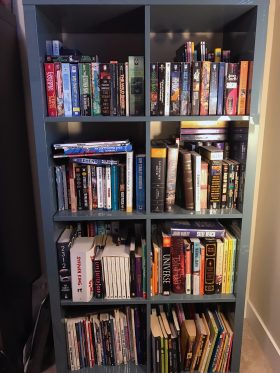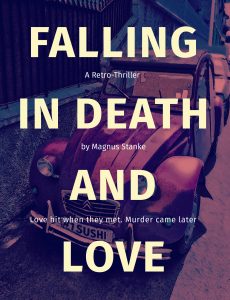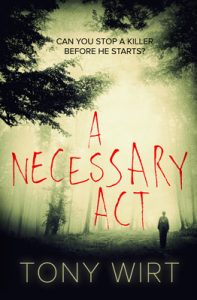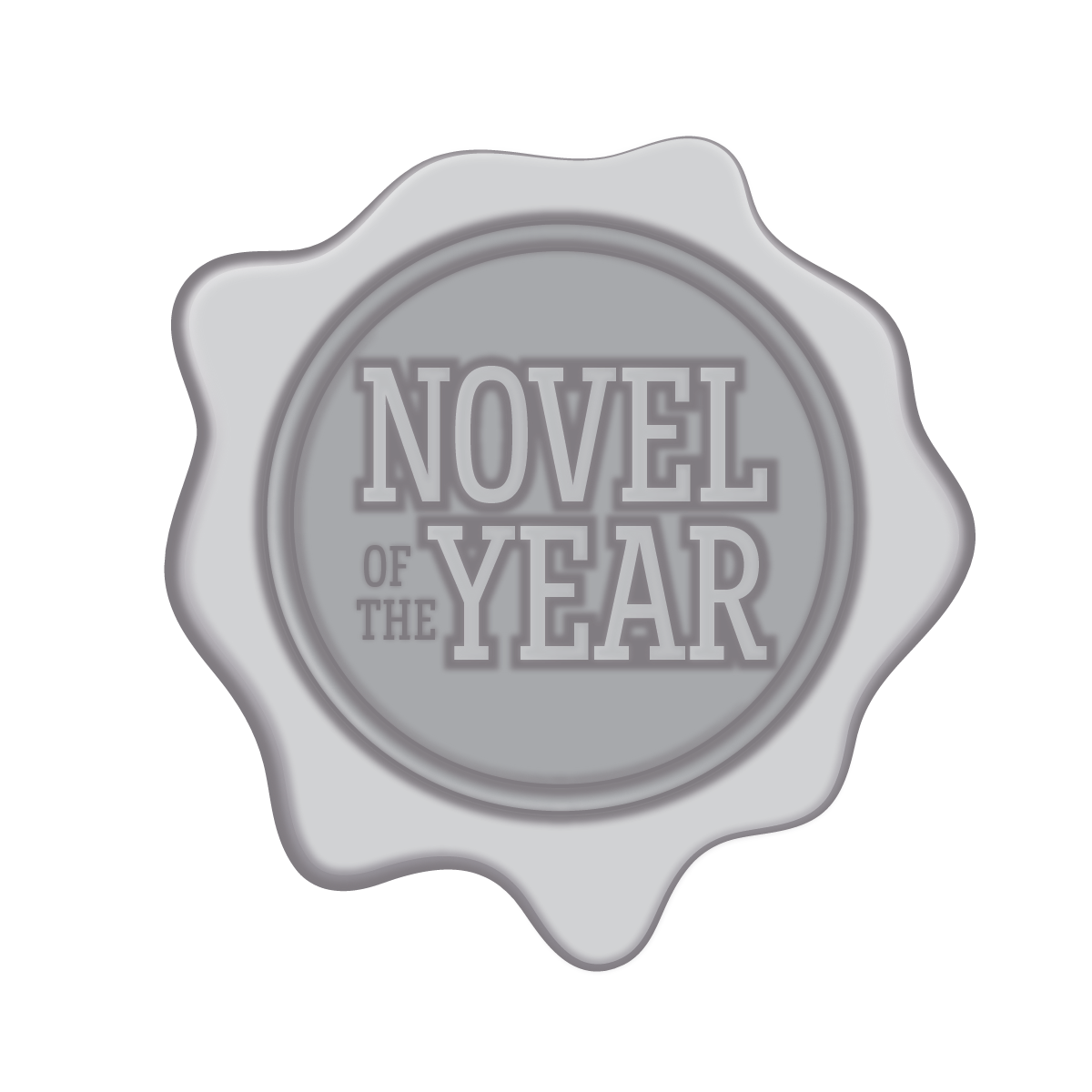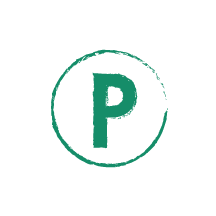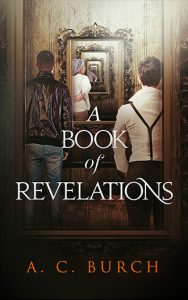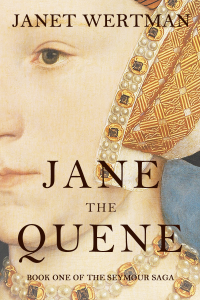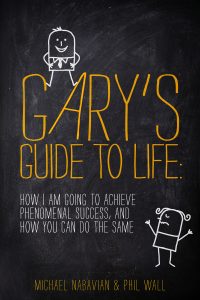The Rundown
The Recommendation
The Rating
The Links
The Reviewer
Bill Kieffer
Visit Bill Kieffer‘s website.Introduction to Angela Quinton of Argyle Werewolf
How do you interview a werewolf? Do you hold out your hand and let her sniff the back of your hand.
Can you expect to get that hand back?
I discovered Argyle Werewolf on the Deviant Art website of my friend and favourite cover artist, Viergacht , also a werewolf. Hey, the artworld is a viscous place; no judging. Turns out there's a large shifter community out there.
Argyle Werewolf is a unique company. I thought you should meet the force behind all those teeth. But first, let's check out her bookcase!
Angela Quinton on her bookshelf
I used to have a 12” by 12” cube bookshelf from Ikea that was completely full, but that fell apart (repeat: Ikea) during our last move, so my books are currently split between a few plastic bins in the crawlspace and this one shelf in the bedroom, where a random assortment of my favourites are arranged two layers deep on each shelf. Given this haphazard situation it seems futile to alphabetize them by author, and I keep hoping the disarray will eventually bug me enough to clear some space in my office for a new proper bookshelf.
ON ARGYLE WEREWOLF
Please describe Argyle Werewolf briefly and what genre(s) you serve.
Argyle Werewolf is not formally a publishing company – it’s the umbrella under which I conduct freelance work and develop creative projects. The image of a werewolf in an argyle sweater is an appropriate representation of the genres most of that work falls into: horror, humour and absurdity.
How did you come to found (your publishing company)? What titles and writers did you start with?
Two projects in 2015 launched the publishing arm of Argyle Werewolf, such as it is: an illustrated chapbook version of a short story I originally wrote for a Hic Dragones anthology, and Werewolves Versus The 1990s. The former was a function of self-indulgence – my wife had done some wonderful illustrations for my story The Librarian, and I wanted a stand-alone artifact I could sell at conventions. The latter was the first issue of a digital anthology of short stories, poetry, comics and art produced by friends that I pestered for the purpose. Something happened and now we’re on issue six and I don’t have to pester anyone anymore.
How focused is your company on horror or humour? How do you define what you are looking for? What happens when you come across a great story that isn’t in your wheelhouse?
Werewolves Versus [WV] is the only project I do that involves publishing the work of others, so everything that gets sent to me is already pre-qualified to be in my wheelhouse, werewolf-wise. Each edition of the anthology has a theme – the 1990s, Romance, Music, Space, Hollywood, Fashion, and so on – and what I want to see in a submission is a creative or extremely well-crafted interpretation of the theme. I prefer horror and humour, but I’ve included romance, essays, satire and tragedies in WV because my editorial preferences can be overridden by sheer delight. Each issue is only permitted to have 15 entries, which is enough to provide a wide variety of material to readers without overwhelming me as an editor and producer.
As a small indie publisher, I expect your company and your home may be somewhat juxtaposed. How much of your place has been given over to publishing? Is it fairer to say that (your company) allows you to have a cot in the break room? Or, perhaps, there’s a clear separation between the two?
I don’t (yet) have physical inventory for WV and virtually all of my work reviewing, curating, editing and assembling each issue is done on a laptop during my commutes to and from work, or in my office at home. Physically, publishing occupies almost no space at all in my life, but mentally, it’s starting to eclipse every other side project and hobby I have.
What was the first time you really felt like you were a publisher?
In September 2017 the latest issue, “Hollywood”, came out. That gave the entire WV series over 1,000 pages and nearly 100 contributors. Those stats alone were enough to make me feel as though it was time to stop sandbagging and admit that I was a publisher. Shortly thereafter I started getting requests for interviews, press kits, and most thrilling of all, notes from writers and artists whose work outside WV was starting to get attention from WV readers.
Tales of Angela Quinton
Imagine that your ultimate destiny is a window-less, suspicious-looking van for a moment. Instead of “free candy,” what would be written on the side of it to lure you inside?
“Shoes”. I’m a fanatic. I go through three pairs of running shoes a year, and I’m always on the lookout for heels that will fit my wide feet. I wish I had a more provocative or clever answer, but at this point I have to accept that the only place I’m going to find comfortable, stylish footwear is inside a magical van of ultimate destiny.
What was the Young You like? Would Young You recognize Current You? What would you tell Young You?
I would tell the chronically miserable and creatively inert Younger Me that doing anything is better than doing nothing. Younger Me wouldn’t recognize Current Me at all and would probably want to hide from this older, healthier, happier, kinder person advising a young hermit to pick up some dumbbells, to write extremely bad short stories and not care, to run a mile, to stop expecting every first effort to be perfect, and to quit waiting for cosmic permission to start accomplishing anything.
What character from fiction are you most like? Which character from fiction would you most like to be? What fictional character would you most like to meet?
I’m wired like Saxifrage Russell from Kim Stanley Robinson’s brilliant Mars trilogy (eg. I’m a perpetually baffled nerd, but I have 1% of his smarts), but I wish I had the wisdom, patience and imperturbable savvy of Carrot from Terry Pratchett’s Discworld books. I’d most like to meet Ransom from C.S. Lewis’s Perelandra series. He saw and did a lot of things that I would love to know more about, like going to space and literally beating the devil to death with his bare hands.
Has becoming a publisher changed you or your social life in any way?
I thought I would have a resounding “yes” response to this question, but now that I think about it, I’ve always been a workaholic. If I wasn’t skipping socializing opportunities to work on WV, there’d be some other project to fill the gap. This probably isn’t healthy and I am going to try hard in 2018 to have a better work / relaxation balance.
On Community Interaction: Readers/Fans
How do you find your readers? Or do readers tend to find you?
As far as I can tell, WV readers arrive from various corners of the Internet – often via the web sites and Twitter accounts of WV contributors – and then share links to the project with their friends. I’ve done my best to market the project on social media and the various web sites I’m involved with, but I think it’s safe to say that most folks who read an issue did it on the recommendation of someone whose taste they trusted.
How do you interact with your readership? Do you have a forum? A newsletter? Pen-pals?
I answer questions, solicit feedback and chat with readers and contributors on Twitter, at @werewolves_vs. I also run a low-volume Slack group where anyone interested in Werewolves Versus is welcome to come hang out. Contributors to a given issue are invited to private channels there to discuss editing and production. Tools like the Werewolves Versus web site and the “email your customers” feature of Gumroad.com (where I host each issue) are useful for broadcasting information but they’re not great for back-and-forth interaction.
Fill in the blank: Readers who like _________ are going to read your books?
Werewolves, horror, humour, and an absolutely buckwild diversity of character, subject and setting.
If money was no object, which book(s) or author(s) would your readers demand to be published?
WV readers are always asking for more of everything, which is great because as of right now there are five more issues planned, but I think they would especially enjoy standalone novels or story collections by past contributors Lew Viergacht, JD Laclede, and the pseudonymous Quebecoiswolf. Their work is consistently excellent, and they each have the storytelling chops to transcend the inherent schlock of the “werewolves + mystery ingredient” structure and build amazing worlds. As a reader and fan I would personally love to see more work by N. Pivonka, not here and Juan C. Moreno – I’ve published their work before, but each has also submitted something that wound up being too big or ambitious for an anthology like WV, and that I felt really deserved its own space as a novel.
On Community Interaction: Writers
How do you attract writers? Or do they tend to find you? From submission to publication to marketing, how closely do you tend to work with your creators?
For the first issue, I invited (or more accurately, pestered) every writer and artist I knew, online and in person, and I managed to rope enough folks in to fill the pages with great material.
For every issue since, I’ve just put out a call for submissions on the Werewolves Versus web site and Twitter account. After an initial period of silence, during which I become certain that this will be the issue that people don’t care about, submissions start arriving. Some are from previous participants and friends, but an increasing number are from people I don’t know – writers and artists from Out There In The World. It’s exhilarating and humbling.
I’ll immediately check the word count for all text-based submissions right away and let the writer know if they’re over the limit, so they have a chance to rework things and resubmit, but other than that I remain hands-off until I’ve selected the finalists for a given issue.
Once we’re in the final editing stage, I’ll create a Google Doc in which I give their story an “editing pass” – correcting grammar and punctuation, and making editorial suggestions where I feel it would be helpful. The writers are the only people who can see their story in this mode other than I, and they have final approval on my edits, which can be accepted or rejected with the Google Docs editing interface.
What are the demographics of your writers? How diverse are they, and is that diversity reflected in your books?
I know very little about the personal lives and identities of most WV creators, but the things that I glean from Gmail avatars, Twitter timelines and casual conversations in Slack make me confident (and proud) that I’m publishing folks from a broad spectrum of backgrounds and identities. The WV project began with a mandate to present a diversity of interpretations and ideas about each issue’s subject. That was the only formal decision I’ve made on the subject of diversity – not because I don’t care, but because the range of people who respond to these cockamamie mashup calls for submissions is inherently colourful.
In addition to being a publisher, do you offer any literary services for creators outside of your publishing company?
Formally, no. Informally, I edit papers and essays for friends. I deeply enjoy editing prose and I’d like to take some classes to improve my technical knowledge of the craft.
Even ebooks have to have covers. How much say do your creators have in selecting a cover artist? How much say in the layout and design?
I used to select the cover art for each issue from the submitted material, but lately I’ve been commissioning original art for the cover so that none of the interior content is double-exposed. I also handle the styling and layout for the cover text and all interior pages. I welcome feedback from the issue’s contributors, who see in-progress versions of the document, but I have final say on the issue’s overall design.
If someone’s story or comic requires special formatting or layout consideration, I’ll work with them during the editing and layout process to make sure they’re happy with the way their work is presented.
Do you have one perfect font for your books or do you work with the writer to find the best font for each book?
For body copy I use Adobe Garamond Pro. I wouldn’t call it “perfect”, but it’s versatile, readable, and solves the problem well enough that I don’t have an excuse to fuss over it endlessly, which I would otherwise do.
On Marketing
Most indie authors understand that they must do some marketing of their book, once it’s published. If publishing was a pool and marketing was swimming, are you the doting parent that shows them a video, buys them water-wings, and eases them in? Or are you more the uncle that throws them into the deep end with a slap on the ass and a hearty “Sink or Swim!” shout?
I’m terrible at marketing. If I had more time I’d learn to get better at it. If I had more cash I’d hire someone to do it for me. Right now I point to the pool, and say “there’s the water – please swim or we’ll all drown a little bit”.
People who might want to know more about werewolves should visit what websites or forums?
The “#werewolf” tags on Twitter and Tumblr are where my exploration of the scene begins and ends. There are so many incredible creators on those two platforms alone that I’ve never needed to look elsewhere. In the early 2000’s I was into forums but I found that they got insular after a time – locked into a set of conventions that became sacrosanct. I’m sure there are great communities out there on PHPBB forums, Telegram, Discord and Mastodon, but I just don’t have the time or mental bandwidth to seek them out, much less participate to an extent that I could vouch for them.
On Community Interaction: Local Real World Stuff
Do you, as a creator, reach out to local community groups or art guilds? Is there an active art community there? If so, do you interact with it in some way?
Vancouver is an extremely creative city and I don’t interact with its art community at all. Some of my friends / WV contributors live in the area, but aside from a meetup or two I haven’t engaged. I feel the same way about this as I did about the “forums and web sites” question from earlier. I’m sure there’s much good that could come from exploring those spaces, but my life and my brain aren’t currently configured to go there.
What is your area like? What attracted you to it? Do you find it inspiring in any way?
Vancouver is beautiful. The area inspires much of my personal writing. I’ve lived within a day’s drive of its glass towers and beaches all my life, even when I was going to college in the British Columbia Rockies. I find its geography endlessly thrilling – a crescent of metropolis wedged between a river, mountains and the ocean – and its relative youth as a city means its culture and its relationship to the land haven’t settled yet.
On Business vs Passion, Publisher vs Creator
What business choices have you had to make that really annoyed your creative self? How often do the artist and the publisher within you butt heads? Which side wins the most often? What was your last bad business but good art decision?
The artist side of me resents business-related obligations, so I have to be diligent and patient with myself when it comes time to handle any part of Werewolves Versus that isn’t “make cool stuff with great people”. A big part of what I want to get out of the project is practical experience in areas that have previously stymied me (or that I previously messed up very badly), so I have no problem overriding the bratty artist desire to open InDesign when I should be working in a spreadsheet.
WV as a whole is definitely more about making art than making good business sense. In its three years it has cost me more in PayPal and bank fees than it’s made me in profit, but all of its contributors continue to earn a steady if modest royalty, and I get to look at over 1,000 pages of amazing material that might not otherwise have been created and sent out into the world. That’s well worth it!
What’s your day publishing like? How many days or hours of publishing are you able to get in per week?
Averaged out over a year, publishing only takes up a few hours a week, but in practical terms it takes up 20 to 40 hour a week for a few months. WV publishes twice yearly, so the production schedule cycles through the same steps every six months: solicit submissions, review submissions, set up a new project with contributors, edit, production, release, marketing. The steps from “review” to “release” generally takes three months, during which most other side projects stop because there just isn’t enough time. Marketing and solicitation run in the background all year long, as do bookkeeping and banking, and participating in fun stuff like this!
If you feel your connection to or appreciation for werewolves, how do you reconnect or revitalize that loving feeling?
I do something totally disconnected from the work – no reading, no writing, no project management or fussing over logistics. Instead I work out – the opposite of sitting in front of a screen for hours – and listen to music that embodies the vibe of the genre. Nothing makes me fall in love all over again with the inherent pulpy horror of werewolves like heavy cartoony smirking nasty songs from Rob Zombie, Mick Gordon, Pelican and Death From Above.
On That Damn Slush Pile
How often is your “open” period, and where do writers find your latest story needs? Do you announce on sites like Horror Tree or Submittable?
The open period for each issue is roughly three or four months, depending on what’s likely to be happening in other parts of my schedule around the time the period ends. All of the requirements for Werewolves Versus submissions can be found on WerewolvesVersus.com, at the “Submissions” link. That redirects to a Google Doc that’s always up-to-date with the latest issue’s theme, as well as wordcount and content guidelines for stories, and technical specs for image submissions.
I announce calls for submissions on the web site and I tweet about it. For the last two issues I’ve also submitted pitches to http://zine-scene.tumblr.com/ and http://zinesubmissions.tumblr.com/, both of which have resulted in some excellent submissions.
What makes a good cover letter or query letter? What was the last one that really blew your mind and made you want to read the whole book? Do you have any examples of the worst?
A good cover letter tells me you’ve read and understood the call for submissions because all of the information I asked for is there. I like some background for context if this is your first submission, but it’s not essential – ideally your work will speak for itself.
The submissions I receive are generally short enough that I’ll eventually read the whole thing regardless of how the cover letter strikes me, although a good first impression means I’ll probably read it sooner, and if the work warrants it, I’ll short-list your entry pretty quickly. I don’t want to directly call out any of the worst, but they generally accompany art-based submissions that may demonstrate great illustration or painting skills but no understanding of the issue’s theme, or that there’s a theme at all. Simply sending me a picture of a werewolf that you made does not make a qualified entry.
What’s your methodology for pruning your slush pile? Do you have a page limit or time limit per day? Do you break them down to different, smaller piles? Or do you keep digging in until you find “the one?”
I read every entry at least twice. The first pass results in a “first impression” score that goes in a spreadsheet. Once I’ve gone through the whole pile for that issue, I do a second read-through. Each story is graded on a half-dozen additional metrics, some technical, some aesthetic, some based on my overall reactions as a reader and an editor. I derive a final score from those values, and those that get the highest scores are generally the finalists for the issue, although gut instinct or the desire for a thematic balance across the whole issue might shuffle things around a little bit.
This is the hardest part of the whole enterprise. Everyone’s work brings me such delight, and I hate having to exclude anyone.
How do you dole out rejection letters? Do you ever say “maybe with revisions”?
In a word, “regretfully”. A piece generally get rejected because of a lack of space, rather than a lack of quality. I’ll include a paragraph or two about what I liked, and some constructive criticism where possible, but for their sake and mine I try to rip the bandage off as quickly as possible.
On Current and Future Plans
What was 2017 like for you and (your company)? What were some of the highlights for you and your werewolves?
This past year was my busiest yet. My goal was to focus on a few things and work on them until completion, but instead things ballooned (in a good way). I released two “regular” issues of Werewolves Versus – Space and Hollywood – and a special double-sized charity issue, but failed to do much of anything with the half-finished draft of my novel, or to write anything for the multiple short stories I’ve stubbed out. Lately I let a few languishing side projects die by not renewing their domain names, and I’ve started to charge what John Roderick calls “‘fuck you’ prices” for my freelance web development work, so I am seeing more free time on the calendar. On a personal level, it was a great year – I finally addressed some long-overdue quality-of-life medical stuff, ran my second marathon, and have run 1,006 miles so far, with 29 days left to tack a few more on.
What are the plans for the immediate future? What books will be rolling off the presses shortly?
WEREWOLVES VERSUS: FASHION will be out in Spring 2018. The slush pile for that is starting to grow, which is exciting. I’m also getting ready to pitch the first five issues to a company that might take it on as a print project. We’ll see how that goes. The InDesign files and assets were always set up with the idea that they might be used for print, but I’m prepared to learn that I did it all wrong and that I’ll have to adjust every page manually. It’ll be worth it to hold a physical artifact in my hands.
Do you have any long range plans in the works?
I’d like to publish a few comics with my wife, who’s an incredible illustrator. We’ve been kicking a few ideas around for years, and it would be fun to start small with that and see what happens.
Visit the author’s website
Shop for Argyle Werewolf's WEREWOLVES VS.

